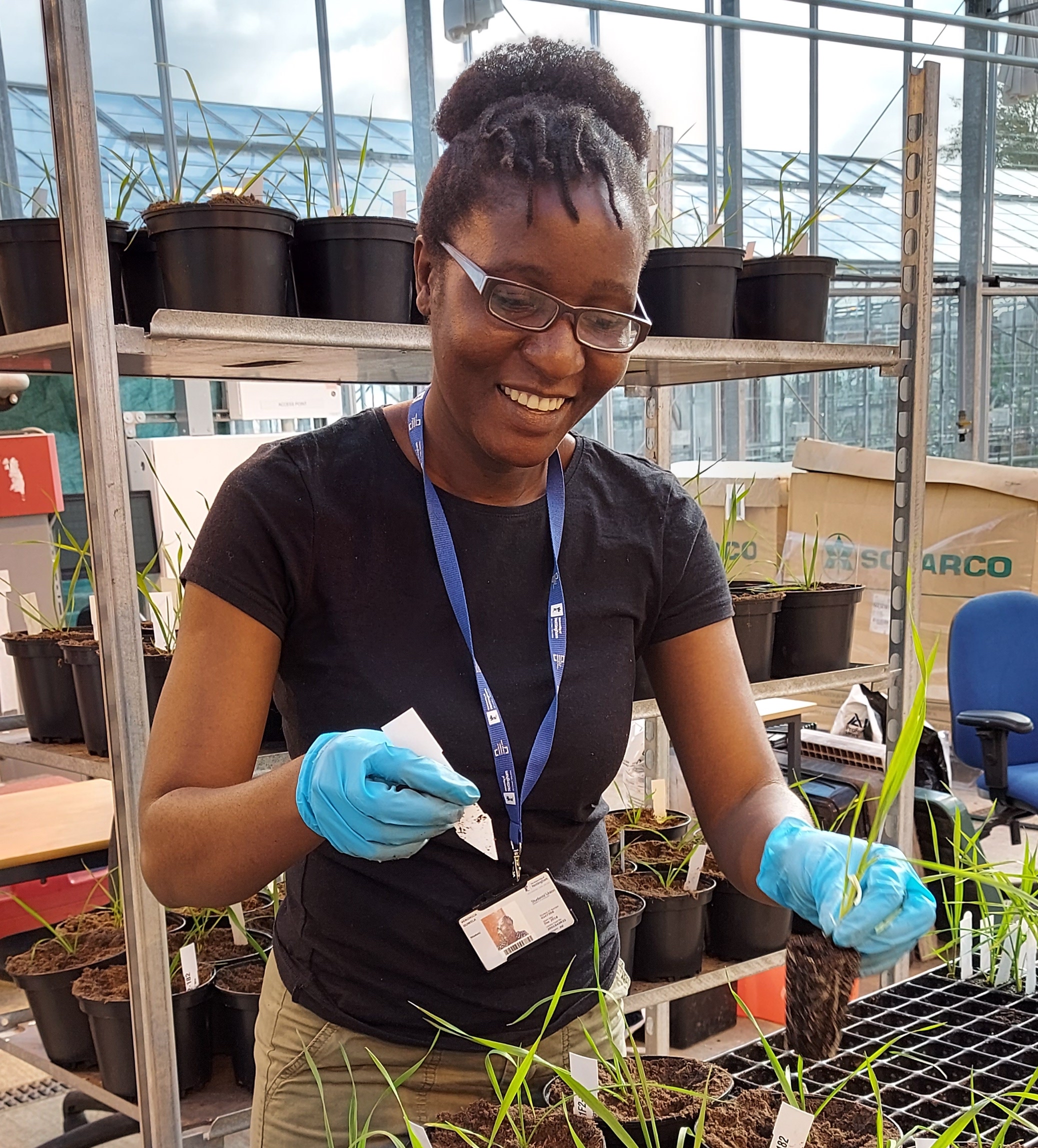
May 18, 2023, by sbzgm6
Veronica Faith Guwela PhD experience
I’d like to share a story of how my love for Agricultural Sciences developed. I was about 12 years old when I accompanied my parents to our family farm to harvest maize. As we were harvesting, I noticed a number of cobs that were affected by maize Smuts. I did not know the name maize Smuts then, but I observed that it resulted in crop losses. My immediate thought was to understand how this came about, and to find a solution to stop it. After high school, I enrolled for a Bachelor’s degree in Agronomy, and later a Master’s degree in Plant Breeding. After completing my Master’s degree, I joined the International Crop Research Institute for Semi-Arid Tropics (ICRISAT-Malawi) as a Scientific Officer. Through my work and my interaction with my line manager, I was motivated to pursue a PhD to become an expert in my field so I can contribute more to crop improvement and grow my professional network. In 2018, I was privileged to receive a University of Nottingham (UoN)-Rothamsted Research (RRes) Future Food Beacon Studentship Award on their International Agriculture Doctoral Training Programme. I started my PhD in January 2019 with the Nottingham-BBSRC Wheat Research Centre (WRC) and Lilongwe University of Agriculture and Natural Resources (LUANAR) under the supervision of Julie King (UoN), Martin Broadley (UoN/RRes), Malcolm Hawkesford (RRes), and Moses Maliro and James Bokosi (LUANAR).

From left to right: Malcolm Hawkesford (Rothamsted supervisor), Philippa Borill ( external examiner- John Innes Centre), Veronica Guwela and Julie King (UoN supervisor)
My PhD research title was; High zinc wheat for sub-Saharan Africa, and it focused on identifying novel sources for increased grain Zn and Fe concentration from wheat wild relatives, and transfer these to African varieties. From the very beginning of my PhD, I was very excited to work on a research topic with potential to address a challenge (micronutrient deficiencies) that I was passionate about. Again, beyond the conventional plant breeding, which I was familiar with, I was excited to learn molecular techniques in plant breeding, such as KASP genotyping and Genomic In-situ hybridisation. I was also looking forward to work with wheat wild relatives, do some field phenotyping and mineral analysis of soil and grain samples. Thus, the interdisciplinary nature of my PhD made it both exciting and challenging.

Veronica at UoN SB glass house
I enjoyed my PhD journey because of the massive support I received from my supervisors, the WRC team and all technical staff in the three institutions that supported me in my practical work. During my PhD, I was able to publish one review article, and co-author one WRC group paper. I have also been able to draft other manuscripts, which will be submitted for publication in due course. I have had three major highlights of my PhD journey; the first was winning the 2023 Jeanie Borlaug Laube Women in Triticum Early Career Award by the Borlaug Global Rust Initiative. The second was an invitation to give a plenary talk on quality and nutrition at the 2022 Monogram Conference, and the last was winning the gold award for the first year Plant Sciences oral presentations during the 2019 UoN School of Biosciences symposium. Away from the Science, I was also working with the University as a resident tutor/resident assistance in the university halls. I enjoyed interacting with, and supporting the welfare of campus residents. Occasionally I also volunteered with Friends International, an organisation for sharing international student experiences in the UK.

Veronica and Julie King standing next to 2023 Jeanie Borlaug Laube Women in Triticum Early Career Award poster
The most difficult part of the PhD was the covid 19 pandemic and the subsequent lockdowns. Due to the covid 19 restrictions, I was not able to work in the lab or glasshouse for over 3 months during the first lockdown. I was also not allowed to travel to Malawi to do my field phenotyping, and this was very difficult. Through this difficult time, I learnt to be resilient as the backlog of the experiments and thesis writing was going to be done concurrently within the last two years of my PhD. I also had to adapt to the changes, by using the lockdown to learn some useful skills such as statistics and science writing. On the positive side again, I had frequent catch-up meetings with my supervisors during the lockdown and this really helped to keep my morale up.
Overall, I had a wonderful experience, networking opportunities, and I developed many skills that will be useful in my career.
No comments yet, fill out a comment to be the first

Leave a Reply